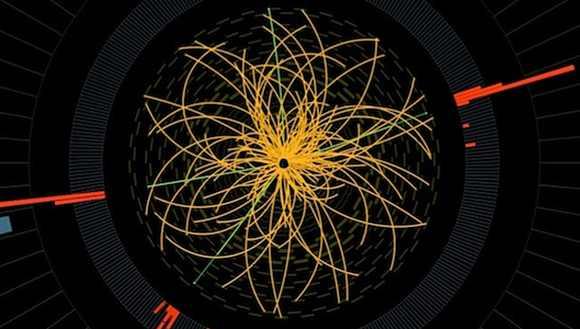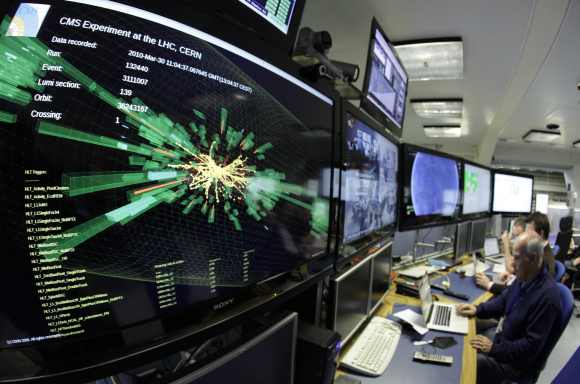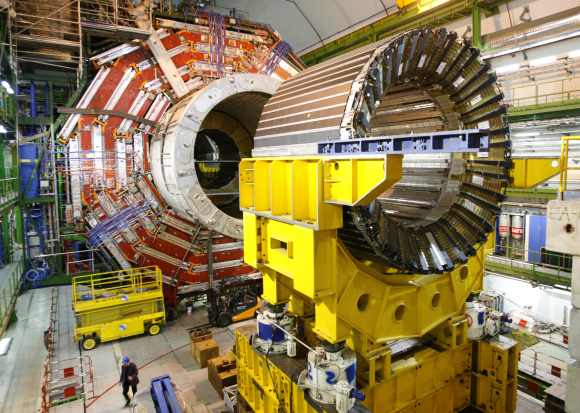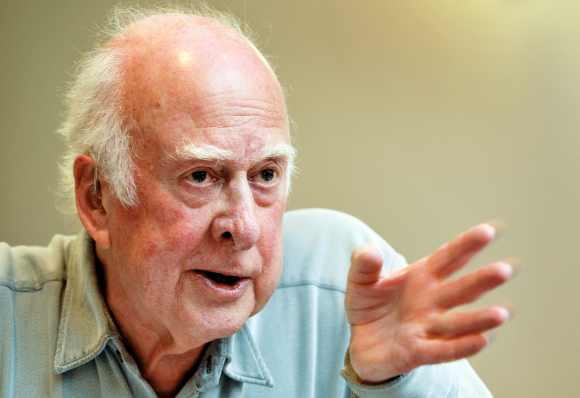
The elusive Higgs boson, or the "God Particle" that may solve the fundamental questions about the formation of the universe has been found, scientists are likely to announce on Wednesday.
Watch live: CERN to reveal mystery behind God Particle
The Organisation for Nuclear Research is said to have invited five leading theoretical physicists to its next update in Geneva on the subatomic particle search, sparking speculation that the particle has been discovered.
It's expected that the scientists will say they are 99.99 per cent certain the particle has been found -- which is known as "four sigma" level, the Daily Mail reported.
Peter Higgs, the Edinburgh University emeritus professor of physics that the particle is named after, is among those who have been called to the press conference in Switzerland.
...

The management at CERN wants the two teams of scientists to reach the "five sigma" level of certainty with their results -- so they are 99.99995 per cent sure -- such is the significance of the results.
Tom Kibble, emeritus professor of physics at Imperial College London, has also been invited but is unable to attend. "My guess is that it must be a pretty positive result for them to be asking us out there," he told the Sunday Times.

The Higgs boson is regarded as the key to understanding the universe. Physicists say its job is to give the particles that make up atoms their mass.
Without this mass, these particles would zip though the cosmos at the speed of light, unable to bind together to form the atoms that make up everything in the universe, from planets to people.
The Large Hadron Collider, housed in an 18-mile tunnel buried deep underground near the French-Swiss border, smashes beams of protons -- sub-atomic particles -- together at close to the speed of light, recreating the conditions that existed a fraction of a second after the Big Bang.

If the physicists' theory is correct, a few Higgs bosons should be created in every trillion collisions, before rapidly decaying. This decay would leave behind a "footprint" that would show up as a bump in their graphs.
However, despite 1,600 trillion collisions being created in the tunnel, there have been fewer than 300 potential Higgs particles.
Now it is thought that two separate teams of scientists, who run independent experiments in secret from each other, have both uncovered evidence of the particle.
...
Photographs: Fabrice Coffrini/Reuters